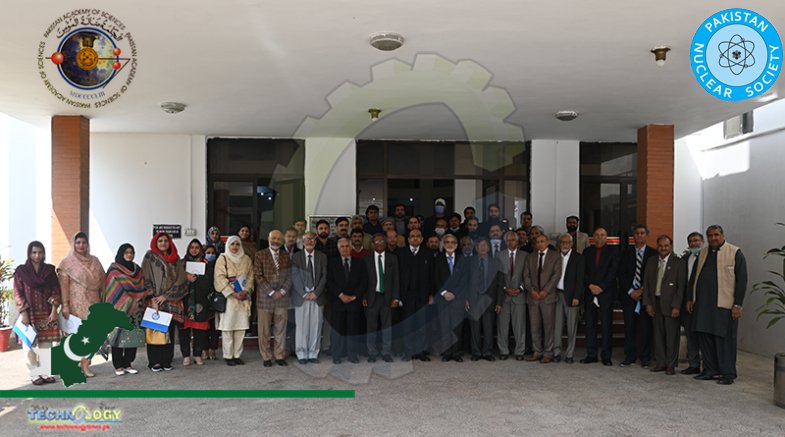Nuclear Technology Is Something To Be Shunned, Claiming Achievement Of SDGs Is, In Fact, Not Possible Without Nuclear Power Plants

The Pakistan Nuclear Society (PNS) and Pakistan Academy of Sciences (PAS) joined hands to bring forth the remedies for sustainable earth environment in a seminar entitled “Afforestation of Global Deserts for Sustainable Future of Earth Environments” held today at PAS, Constitution Av., Islamabad. The speakers focused on ‘deserts’ as the target for future sources of energy, food production and even water harvesting. The futuristic scenarios discussed in the seminar were preceded by an equally thought-provoking presentation by the President PNS, Dr. Imtinan Elahi Qureshi, who dispelled the notion that nuclear technology is something to be shunned, claiming that the achievement of SDGs is, in fact, not possible without employing nuclear power plants for energy production, nuclear techniques for agricultural productivity, nuclear radiations for diagnosis and therapies of cancer treatment, using of stable and naturally occurring isotopes for monitoring of water resources, pollution types and levels, and global atmospheric precipitations. He noted that the role of peaceful uses of nuclear technology as well as the contributions of nuclear professionals in economic development is not well projected at national level.
Introducing the purpose and theme of the Seminar, former Pakistan Atomic Energy Commission’s hydrologist and Executive Member of PNS Council, Dr. Niaz Ahmad said that greening of deserts is necessary due to the increasing food demand of a rapidly increasing world population. Initiatives by Countries for greening Deserts, like China, Sahara Green Wall Project by African Union, Saudi Arabia and UAE have been globally recognized as successful models in this respect.
The Chief Guest of the event, Dr. Yusuf Zafar, former chairman PARC, gave figures of crop productions such as chillies, ispaghol, castor, grams, etc. that are being successfully grown at the fringes of Thar desert in Pakistan. He regarded it as a failure of the government policies that Pakistan has become a net importer of food, with a trade deficit of US$ 4 B. He pointed out that Food security entails not only quantity of available food but also its acceptable quality for human consumption.
The Chairman PCRWR, Dr. M. Ashraf Choudhry and Dr. Usman Ali Abbasi of Arid Agricultural university Rawalpindi, highlighted the potential of deserts as sources of livelihood and food security for future generations, using technologies that are currently available. Dr. Choudhry cautioned against the intensive cultivation practices, as well as imprudent choices of crops with respect to the water requirement for each category. He particularly identified rice crops as the highest water consumers. Desert dwellers depend on live stock, which needs water for survival. The conventional technique of retaining water in ponds is the natural way of harvesting rain water. He said that rice export is equivalent to the export of scare fresh water of Pakistan. Dr. Usman highlighted various farm practices, such as drip irrigation, as viable options in Pakistan due to limited water availability.
The Pakistan Meteorological Department’s expert Mr. M. Irfan Virk presented data on the role of deserts in defining the global climate changes. He also elaborated technical details of weather and climate, type of deserts based on climate, basic concepts of atmospheric circulation, climate type and climate change.
Dr. Imtiaz Ahmad, Advisor Pakistan Atomic Energy Commission, outlined the results of studies on the ‘water footprint’ of commodities that have become part of life styles throughout the world. He stressed that the ‘virtual water’ that is locked up because of consumption patterns will lead to catastrophic shortages of fresh water for drinking, in view of rapidly increasing world population. Considering that only 3 % of the total water on earth is fresh water, there should be a strong emphasis that water is a scarce commodity and has high economic worth. While thanking the speakers, participants and organizer in PAS and PNS, the General Secretary PNS, Dr. M. Mohasin, stressed upon the need for public awareness about issues affecting their future and the role that electronic and print media can play in this connection.